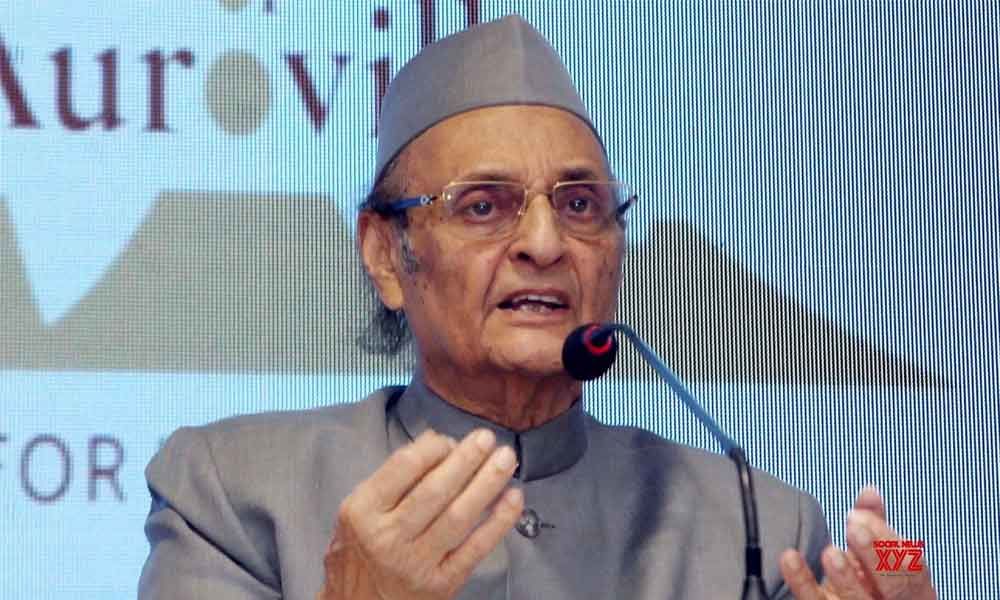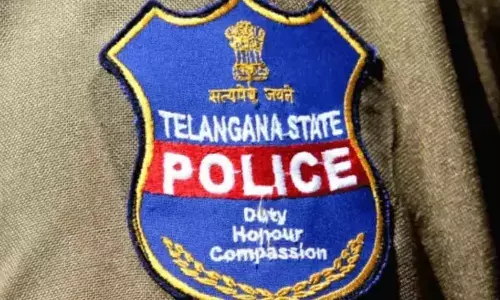Tread cautiously on Art 35A, 370: Karan Singh

He is the Man Who Knows Too Much, Dr Karan Singh or Tiger as his father Maharaja Hari Singh used to call him fondly, formerly Regent of J&K
New Delhi : He is the Man Who Knows Too Much, Dr Karan Singh or Tiger as his father Maharaja Hari Singh used to call him fondly, formerly Regent of J&K (from June 20, 1949, he acted as Regent), then Sadr e Riyasat (from November 17, 1952 to March 30, 1965, Karan Singh was the elected head of state of Jammu and Kashmir).
On 30 March 1965, Karan Singh, who became the first Governor of Jammu and Kashmir (till May 15, 1967) and the last residual link between feudal and monarchial Kashmir and its evolution to a democratic set-up, wants the government to tread cautiously on constitutional issues related to J&K.
Despite being a centrifuge in the early years of India's independence and Kashmir's contentious accession, no political party has chosen to use his sagacity and wisdom while dealing with the Kashmir problem.
Even as four districts in south Kashmir and a few hawks sitting in Srinagar hijack the nationalistic agenda and argue for separatism, the new Home Minister Amit Shah is rolling out a plan to meet fire with fire and try and settle the controversial issue once and for all.
IANS met the 88-year-old son of Maharaja Hari Singh, the last Ruler of J&K who acceded to the Union of India, and posed several important questions to him on the future course of action for the state which requires an urgent salve and a resolution.
The octogenarian with a razor-sharp memory straight off the bat said, "Let me start by saying that the accession is final and irrevocable, nowhere am I questioning its wajood (existence). This accession has been confirmed and validated by the J&K Constituent Assembly which lies dissolved, so there can be no questions asked about its veracity.
Legally, morally and constitutionally, the state is part of the Indian sovereign. However, on Article 370 and 35A, I would advise extreme caution: tread carefully for there are legal, political, constitutional and emotional factors involved which should be thoroughly assessed, I think that is fair warning."
On being pressed further, he argued that, "Please understand there are four critical dimensions to this problem, for starters there is an international dimension with 45 per cent of the original state's area and 30 per cent of its population (as of October 26, 1947) having been sliced away over the years.
Remember that both Pakistan and China are sitting on our territory. We may live in denial and every once in a while talk of Pakistan Occupied Kashmir, but there is also Gilgit, Baltistan and the Northern Territories, the largely inhabited Aksai Chin and Shaksgam and Yarkand River Valleys which run adjacent to the Trans Karakoram Tract which have been lopped off.
"In fact, till 1963, the last part was considered part of J&K by Pakistan. It is easy to say 'Kashmir hamara hai', but for 50 years I have stayed in Delhi and not once have I seen the 'dard' of this hapless and star-crossed state in Delhi and India. Only lip service has been offered instead."
The most important point of the instrument of accession was that its ruler and formal head Hari Singh decided and declared that the state of Jammu and Kashmir accede to the 'Dominion of India' with a clear result that from here on "governor-general of India, the dominion legislature, the federal court and any other dominion authority established for the purposes of the dominion" would be legally authorised to carry out any function in respect to the state of Jammu and Kashmir, as vested in them by or under the Government of India Act, 1935.














